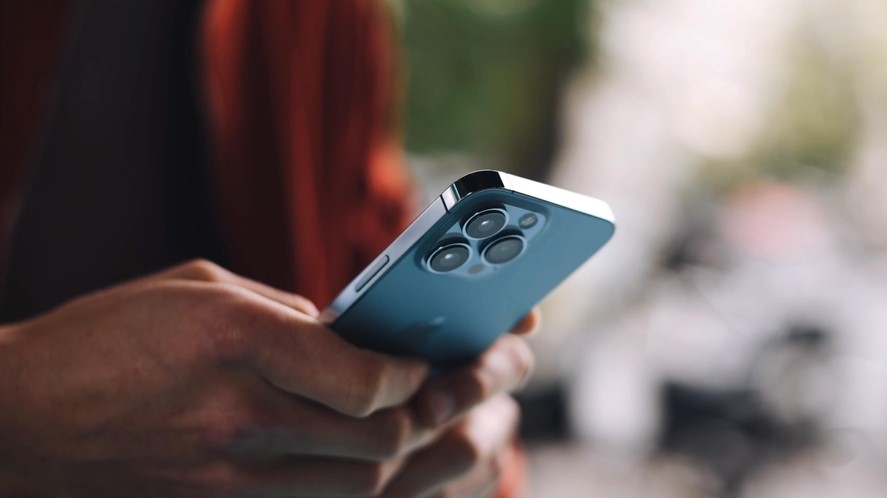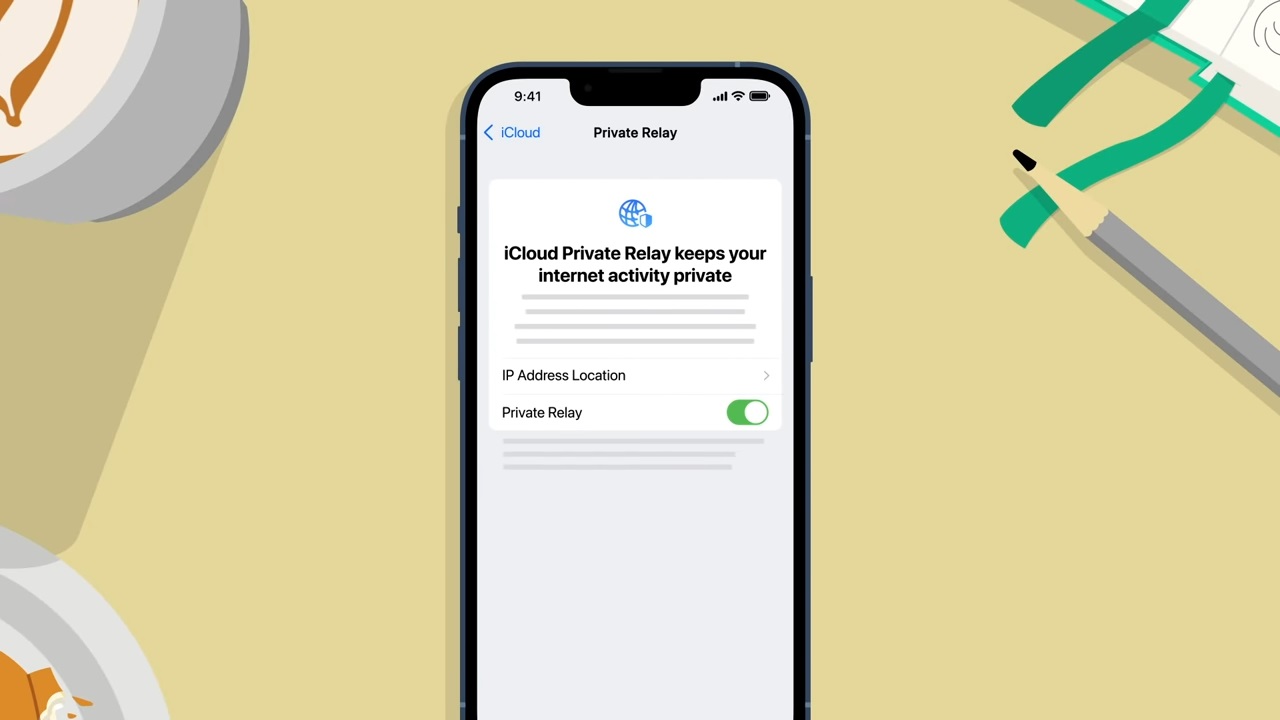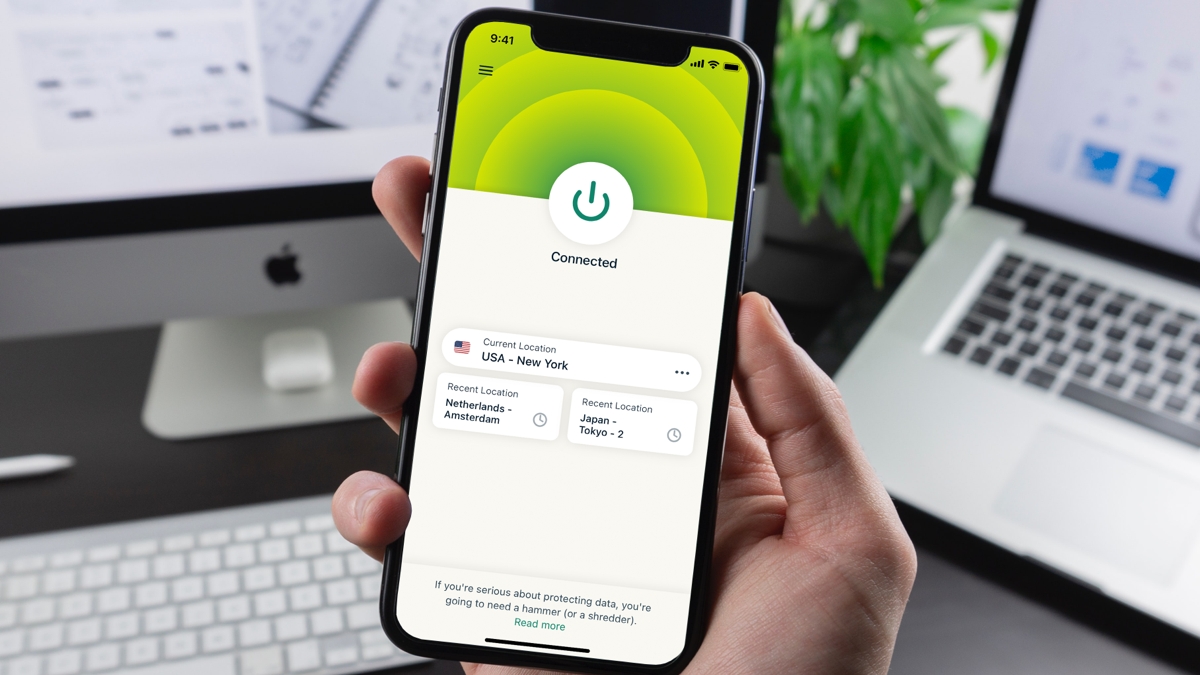Is there a built-in VPN on your iPhone?
Why Private Relay is not an answer to a third party VPN

Sign up for breaking news, reviews, opinion, top tech deals, and more.
You are now subscribed
Your newsletter sign-up was successful
In an effort to be at the edge of tech innovation, every year Apple introduces new hardware and software. It does this while also seeking to maintain its reputation of developing incredibly secure devices with features like Private Relay.
Introduced back in 2021, one would be forgiven for assuming this is Apple's very own version of a VPN. However that is not really the case, with a number of key limitations that make the need for third party iPhone VPN still necessary in order to optimize your device.
Read on as we explain why Private Relay is not a built-in VPN for your iPhone, the differences between the two, and what the best VPN for the job looks like in order to protect your Apple smartphone.
Private Relay vs VPN: how do they differ?
The first thing to note is that just because you have an iPhone doesn't mean you automatically get the Private Relay feature. It comes with iCloud+ accounts - this is anyone that's paying for additional cloud storage. Already, in that sense, it's not a 'built-in' service.
Secondly, Private Relay is not a VPN, though it does offer some security and privacy perks - they're just not anywhere near as extensive as a fully fledged VPN.
Able to conceal a users IP address, Private Relay only protects traffic with Apple's own web browser, Safari, and apps with insecure connections (HTTP as opposed to HTTPS). For anyone opting to use Chrome or another browser on an iPhone won't be protected.
While Private Relay automatically chooses two random servers to connect to and prevent any digital path from being tied to you and your device, it loses out on the ability to select a specific country like a VPN.
Geo-spoofing allows you to access otherwise restricted content online and is one of the main reasons why (beyond boosted security) you'll want a VPN for your iPhone.

What can an iPhone VPN do?
Each VPN provider has its own sets of strengths and weaknesses, but all the top services we recommend for iPhone offer far more benefits than the Private Relay feature. For example, a good VPN:
- Conceals your IP address
- Encrypts incoming and outgoing traffic
- Boasts additional features to bolster security and privacy such as NordVPN's Double VPN
- Prevents bandwidth throttling from your Internet Service Provider
- Unblocks geo-restricted online content
- Gets American Netflix so you can watch US exclusives like 30 Rock
- Overseas? Watch UK TV abroad or stream other region-specific content wherever you are
Unlike Private Relay, a VPN will also provide you better online anonymity no matter whether the website or app uses HTTP or HTTPS.

So...is there a built-in VPN on your iPhone?
The short answer: no. The iPhone doesn't come with its own built-in VPN and Private Relay certainly isn't an answer to that. It's worth noting nor do any of Apple's other devices. Much like on an iPhone, you'll need a third party Mac VPN or iPad VPN which you can install from the App Store - though we always recommend signing up directly through a provider's website to get the best VPN deal.
What are the best VPNs for iPhone users?
Our top three VPN services to recommend for iPhone users are ExpressVPN, NordVPN, and Surfshark. We deemed these providers to have the best interface on iPhone, assimilating well into iOS and providing an intuitive and easy-to-navigate user experience. In line with Apple's reputation for providing a clean and striking aesthetic, all three providers also tick off other key areas.
They maintain speedy performance across basic online browsing, gaming, and streaming, with all three securing above average speeds in our last round of testing. In fact, NordVPN maintained its track record of being one of the most reliable and fastest VPN with peaks of 730-760Mbps. Surfshark wasn't far behind at 720-790Mbps. ExpressVPN, while a touch slower, still soars at 420-630Mbps averages, all three sets of results of which are more than adequate for the average user.
As well as an abundance of security features including Double VPN, split-tunneling, kill switches, and strong encryption, all three also are able to open the doors to all the most popular streaming services. These include BBC iPlayer, Prime Video, and Disney Plus. All three also find their way onto our best Netflix VPN guide, too.
Sign up for breaking news, reviews, opinion, top tech deals, and more.

Alice formerly worked as an eCommerce Editor at Future across its portfolio of brands. Still stringing together words for a living, she writes about everything from entertainment to consumer tech to VPNs – and what they allow you to watch! She has been writing in the eCommerce space for more than five years, previously working at Trusted Reviews before joining Future.